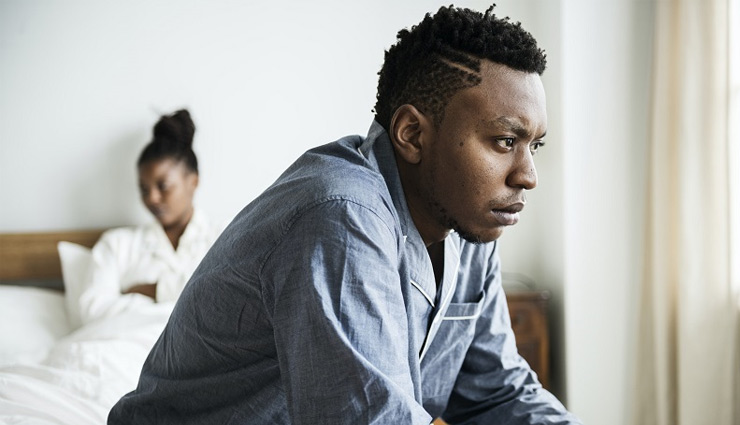Newly married and feeling irritable, sad, or disappointed? These may be signs of depression after marriage but don’t worry because you can take steps to curb it. In this article, we talk about post-marriage depression and ways to deal with it. Stay with us.
What is depression after marriage?
Depression usually causes symptoms such as hopelessness, feelings of worthlessness, lack of motivation, lack of concentration, negative thinking, and not enjoying regular activities.
Marriage is one of the happiest events in Life, and you may be surprised to see the signs of depression after the wedding; feel guilty and ask yourself, “Why do I feel this way after something that I was so passionate about?”
Feeling guilty about these feelings is entirely normal. Marriage involves several significant changes and the beginning of a new stage in Life. These changes may affect your mood and cause you to experience symptoms of depression. Sometimes this feeling may have another meaning.
Causes of depression after marriage
The media and cultural pressure and making the wedding day unique as a “big day” makes many people feel sad or depressed after the wedding.
After marriage, you may feel depressed when you go back to your routine and the duties and responsibilities of your job because you feel like you have nothing exciting to look forward to.
According to psychotherapist Dr. Heather Brown, the challenges of a new life together can also be stressful. “Sometimes the reason for these feelings is that you think your partner doesn’t love you the way you want or think you do, and these thoughts lead to anger, resentment, and depression,” she says.
How to know if this feeling is depression or temporary discomfort?
You may think you have post-marriage depression, but these feelings of sadness are temporary. Grief is a natural emotional response to losing something or someone dear to you.
Uncomfortable feelings may be due to the subsidence of wedding excitement. In this situation, all the planning and excitement of the dress, reception, guests, and ceremonies are behind you, and you are back to the routine of Life.
Significant life changes, even joyful ones, are often accompanied by loss. By going to university, we leave the exciting period of adolescence; having children means we lose the freedom to live without children. After marriage, we also give up a part of our independent identity. With these interpretations, it is natural to feel uneasy when you suddenly enter married Life from single Life. Fortunately, these feelings are temporary.
How to deal with depression after marriage?
Depression after marriage is a normal feeling you can easily control and feel better. In addition to getting help from a professional, self-care for depression may also be helpful. We review some of the most important self-care strategies against depression in this section.
1. Identify reasons for feeling insecure about marriage
Marriage is a significant milestone in a relationship. No matter how much you’ve been together or how excited and confident you are about your marriage, the transition from dating to legal marriage can be daunting and leave you feeling like you’ve made the wrong decision. The origin of this feeling may be the influence of people around or their words and experiences. According to research, relationship dissatisfaction and depression after marriage are related.
The first step is to identify this situation. Sometimes, being unsure about the marriage decision may make you anxious and make the status ambiguous. Talking about the case allows you to address your concerns appropriately. For example, instead of saying, “I don’t know how I should behave after marriage,” dig a little deeper to understand the reason for this doubt.
- Are you worried about giving up the things you enjoyed before you married?
- Are you worried about your and your spouse’s expectations for tasks or finances?
- Are you worried about changing your identity as a married person?
Identifying and labeling emotions is the first step to controlling them; Write down your big and small worries.
2. Talk to your partner about your feelings
One valuable strategy to curb marriage doubt is to talk about it with your partner. According to research, talking about this topic increases intimacy between husband and wife and provides an opportunity to set rules and expectations for both parties.
Depression after marriage is challenging for both partners. Don’t hide your feelings, and talk to your partner about it. Your wife’s empathy with you will be beneficial. By doing this, you will form a solid team to fight depression and get rid of it.
When speaking, start your sentences with “I” instead of starting with “you.” Phrases that begin with “you” tend to be critical and often lead to a defensiveness that prevents a productive conversation.
3. Keep parts of your single Life
Getting married does not mean giving up a single life completely. If you think that the feelings of hopelessness and depression after marriage are due to moving away from family, friends, or things you love, you can still maintain those parts of your Life that bring you joy.
Make a date with your family or friends and spend time together. Do your favorite activities and feel the excitement of the single world again.
4. Set a new goal
Think the wedding is over, and you’re no longer excited about anything significant? You are wrong Life is full of memorable and unique events and emotions! Just set a goal and work hard to achieve it. Achieving a goal is like a big event that you are excited about. Some of the fun programs that you can enjoy are:
- Planning a family vacation;
- holding a family party;
- savings for buying a new house;
- Preparing for the first wedding anniversary;
- Renovating or changing the decoration of the house;
- Celebrating the wife’s birthday.
you say
What do you think is the relationship between depression and marriage? Please share your thoughts and experiences about depression after marriage with us.



